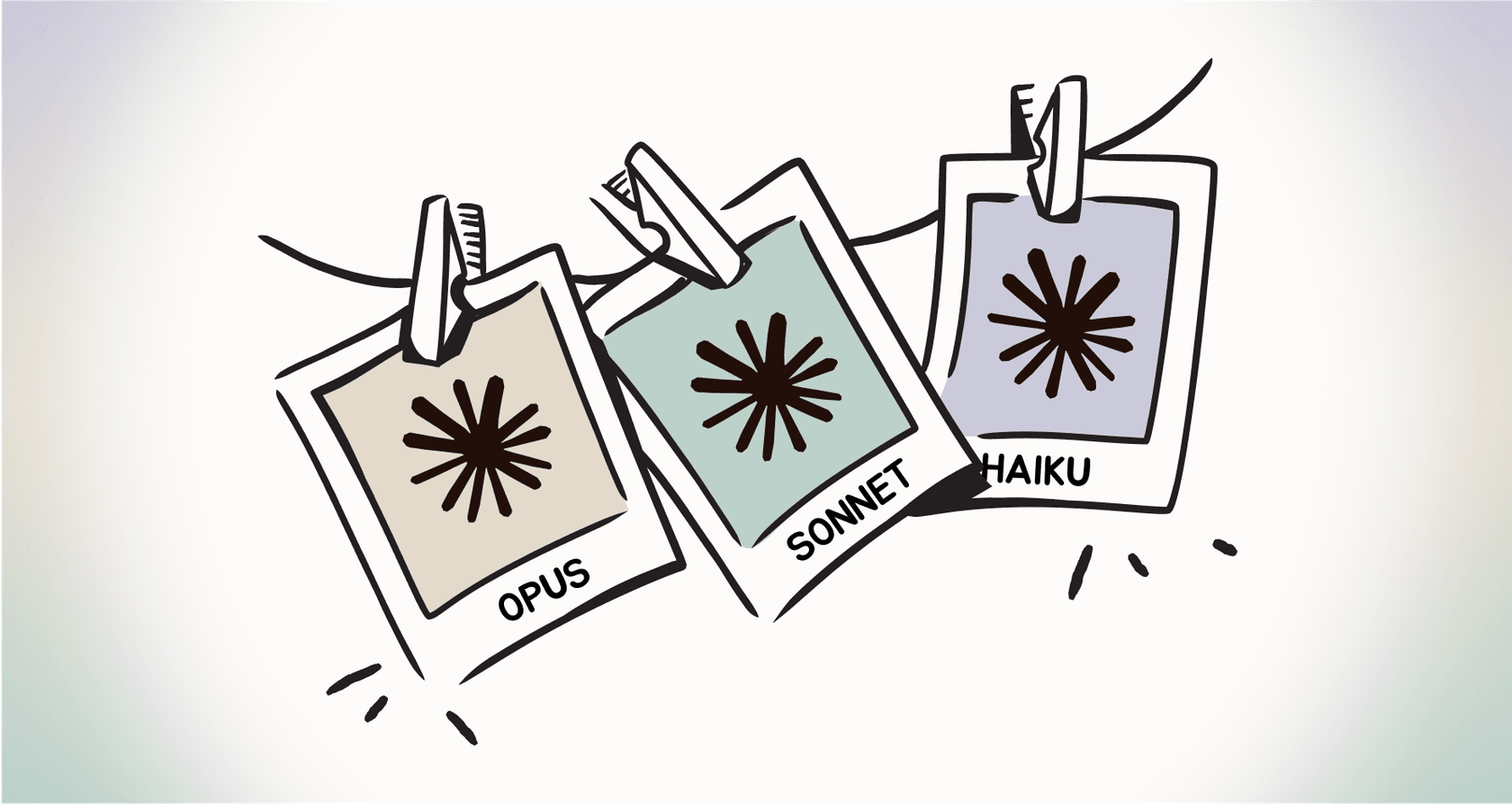
The AI hype train is moving at full speed. It feels like every week a new tool pops up promising to completely change the way you work. But let’s be honest, trying to find AI platforms that solve real problems instead of just offering a flashy demo is a full-time job. Most of us don't need another gimmick; we need tools that save time, cut costs, and make our teams' lives easier.
That's why I decided to do the digging for you. I’ve spent the last few weeks trying out dozens of popular AI platforms to see what’s real and what’s just noise. This guide is the result, a straightforward, no-fluff breakdown of the seven best options I found. We’ll look at everything from automating customer service to creating marketing content that doesn't sound like a robot wrote it.
What are AI platforms anyway?
Before we jump in, let’s quickly get on the same page. An AI platform isn’t just a simple tool that does one small thing, like rewriting a sentence or making a picture. It’s more like a complete software package that gives you a bunch of AI abilities in one place.
Think of it this way: a simple AI tool is like a hammer. It’s great for one specific job. An AI platform is the entire toolbox. It lets you build, manage, and use AI-powered solutions that can handle more complex work. These platforms often connect to the software you already use, letting them automate tasks, analyze data, write content, and even manage customer conversations from start to finish.
flowchart LR A[AI Tool: Hammer] -->|One task| B[Rewriting text] C[AI Platform: Toolbox] -->|Multiple tasks| D[Automate workflows] C --> E[Analyze data] C --> F[Manage customer conversations] C --> G[Generate content]
How we picked the best AI platforms
To make a list that’s genuinely helpful, I focused on what really matters to a business. I didn’t just scan feature lists on pricing pages; I got in there and used each platform to see how it held up in the real world.
Here's what I looked for:
- Easy integration: How well does it play with the tools you already use every day, like your help desk, CRM, or knowledge base? The less of a headache it is to set up, the better.
- Specialization: Does the platform do one thing exceptionally well? A tool that tries to do everything often ends up being mediocre at all of it.
- Quality of output: Are the results actually any good? I was looking for accuracy, reliability, and useful answers, not just generic, robotic fluff.
- Growth and pricing: Can the platform scale as your business grows? And just as important, is the price fair, easy to understand, and connected to the value you're getting?
The best AI platforms of 2025: A quick comparison
Here’s a bird's-eye view of how the top platforms compare.
| Platform | Best For | Key Feature | Starting Price |
|---|---|---|---|
| eesel AI | Customer service & internal support automation | Works with your existing help desk, no migration needed | $299/month |
| ChatGPT | General-purpose help & brainstorming | Multimodal (text, voice, vision) | Free plan available |
| Jasper | Creating marketing content at scale | Brand Voice training and campaign workflows | $49/month |
| Zapier | Connecting apps with simple automation | 7,000+ app integrations | Free plan available |
| Google Vertex AI | Developers building custom AI models | Unified MLOps and access to Gemini models | Pay-as-you-go |
| Claude | Deep document analysis & thoughtful writing | Large context window (200k tokens) | Free plan available |
A deep dive into the 6 best AI platforms
Alright, let's get into the nitty-gritty. Here’s a detailed breakdown of the strengths, weaknesses, and who each of these top AI platforms is really for, so you can find the right one for your business.
1. eesel AI – for customer service & internal support automation
What immediately caught my attention about eesel AI is its approach: it works with your current tools, not against them. So many AI platforms expect you to ditch your help desk and move everything to their system, which is a massive, expensive project nobody wants. eesel AI just plugs into what you already have, whether that’s Zendesk, Freshdesk, Intercom, or even your internal Slack channels.
The setup is surprisingly simple. You can connect all your knowledge sources, like old support tickets, a help center, or a messy collection of Google Docs and Confluence pages, in just a few minutes. It then uses all that history to give answers that are accurate and sound like your brand. It offers a fully autonomous AI Agent to handle initial support questions and an AI Copilot that suggests replies for your human agents to help them work faster.
But the best part for me is the Simulation Mode. It lets you test the AI on your past tickets before it ever talks to a real customer. You get a report showing its performance, accuracy, and how much money it could save you. For any team that's a bit hesitant about unleashing an AI on their customers, this feature is fantastic for building trust.
Pros:
- It connects to your current software, so you don't have to go through a painful migration.
- It's incredibly easy to set up yourself and get running in minutes.
- You can adjust its tone and rules for escalation just by telling it what you want in plain English.
Cons:
- It’s focused entirely on support and knowledge automation, so it's not the right pick for creative writing or coding.
Pricing: Starts at $299/month, based on how much you use the AI, not on expensive per-user seats.
2. ChatGPT – for general-purpose help and brainstorming
You can't really have a conversation about AI platforms without bringing up ChatGPT. It's the jack-of-all-trades that can do just about anything, draft an email, write some code, analyze data in a spreadsheet, or create a picture from a description. It's a great tool for brainstorming and getting one-off tasks done quickly.
The community has built a huge number of custom GPTs for specific tasks, and its ability to browse the web and understand code makes it a great research assistant. But for a business, its biggest strength is also its biggest weakness. It's a generalist. It can't directly automate specific business processes, like sorting support tickets or updating your sales pipeline, unless you have a developer build a custom solution with its API.
Pros:
- Super flexible and can be used for a massive range of tasks.
- Has a huge library of custom tools and add-ons built by the community.
- The free version is powerful enough for many simple uses.
Cons:
- It's not built for specific business workflows and doesn't have direct integrations to automate processes.
- The answers can be a bit generic if you don't give it very detailed prompts.
Pricing: There's a free plan. The Plus plan is $20/month.
3. Jasper – for creating marketing content at scale
Jasper is an AI platform made specifically for marketing teams. Its main job is to help you create on-brand content quickly and consistently for all your channels. I found its Brand Voice feature works really well. You give it examples of your company's writing, and it learns your style and tone, making sure everything it produces sounds like it came from your team.
It also has ready-made templates and "campaign workflows" for common marketing jobs like writing blog posts, social media captions, or ad copy. This structured approach is perfect for teams that need to produce a lot of content without letting quality slip. The downside is that it's pretty focused, so it's not much help for anything outside of marketing.
Pros:
- Great for making sure your brand voice stays consistent everywhere.
- Useful templates and workflows that speed up common marketing tasks.
Cons:
- The price can add up quickly, especially for individuals or small teams.
- It's very marketing-focused, so it's less useful for other business needs.
Pricing: Starts at $49/month.
4. Zapier – for connecting apps and simple automation
For years, Zapier has been known as the digital duct tape of the internet. It’s a fantastic platform for connecting different apps and creating simple "if this, then that" workflows without needing to code. With over 7,000 app connections, pretty much any software you use is probably on Zapier.
They've recently added AI features that let you describe what you want to automate in plain English, which makes it even easier to use. But at its heart, Zapier is about connecting point A to point B. It's great for simple, repetitive tasks, but it doesn't have the nuanced, context-aware thinking of a true AI agent. It can’t dig into the details of a customer's problem and figure out the best thing to do next like a dedicated support automation tool can.
Pros:
- A massive, unmatched number of app integrations.
- Very easy for non-technical folks to get started and build simple automations.
Cons:
- The logic you can build is pretty limited, especially on the cheaper plans.
- It's made for simple triggers, not for complex, intelligent decisions.
Pricing: A free plan is available. Paid plans start at $29.99/month.
5. Google Vertex AI – for developers building custom models
Google Vertex AI is an absolute powerhouse, but it's built for a very specific audience: developers and data scientists. It’s a platform that gives technical teams all the tools they need to build, train, and launch their own custom machine learning models. It provides access to Google's powerful Gemini models and other tools to simplify the process.
This is the platform you turn to when you have a dedicated AI team and a very specific, complicated problem you need to solve. It’s not something your support or marketing team can just log into and start using. It takes serious technical skill and resources to get anything out of it, putting it in a whole different league from the other platforms on this list.
Pros:
- Extremely powerful and can be scaled up for custom AI projects.
- Perfect for companies with in-house technical and data science teams.
Cons:
- You need to be a developer or data scientist to use it. It's not a tool for your average business user.
Pricing: You pay as you go based on the computing resources you use.
6. Claude – for deep document analysis and thoughtful writing
Claude, from a company called Anthropic, has made a name for itself as the more "thoughtful" AI assistant. Its biggest advantage is its huge context window, which means it can process and think about massive amounts of text at once. I’ve thrown entire books, long legal contracts, and dense research papers at it, and it does a surprisingly good job of summarizing and analyzing them.
Its writing style often feels a bit more formal and polished than other models, which makes it great for drafting professional documents. But just like ChatGPT, Claude is an assistant for thinking, not a platform for doing. It can help you understand a long, angry customer email, but it can’t automatically tag that ticket, send it to the right person, and draft a reply. It's a fantastic tool for analysis, but not for taking action.
Pros:
- Excellent at understanding the details and nuance in very long documents.
- Its writing style tends to be more professional and less over-the-top.
Cons:
- It's more of a thinking and analysis tool, not an automation platform for getting business tasks done.
Pricing: There's a free plan. The Pro plan is $20/month.
How to choose the right AI platforms for your business
Feeling a bit lost in all the options? Don't worry. Picking the right platform gets a lot easier if you stick to a few ground rules.
When choosing AI platforms, start with your actual problem
Before you get distracted by shiny features, figure out your single biggest headache. Are your support agents drowning in the same questions over and over? Is your marketing content not hitting the mark? Are people on internal teams constantly bugging each other in Slack for information? The best AI platform for you is the one that's built to solve that specific problem.
Stick with AI platforms that work with your existing tools
This one is huge. The hidden cost of switching your core systems, like your help desk or CRM, is massive. It’s not just the money; it’s the months of chaos, retraining your team, and lost productivity. Look for AI platforms like eesel AI that are designed to connect with what you already have. It's a faster, cheaper, and safer way to start using AI.
Look for AI platforms with an easy setup and a free trial
The best modern software isn't hidden behind a wall of sales calls and forced demos. The companies are confident enough to let you try it for yourself. Choose platforms that offer a free trial and let you get set up on your own. This lets you see if it's actually a good fit for your team before you spend any money.
Understand how you're being charged for AI platforms
AI pricing can be tricky, but it usually comes in two flavors: per person or per use. Paying per person can get very expensive as your team gets bigger, and you often end up paying for people who aren't even using the AI features. Usage-based models, like the one eesel AI uses, are usually fairer. They connect the cost directly to the work the AI is doing, so you only pay for the value you're actually getting.
Give your team a boost with the right AI platforms
Here’s the bottom line: the "best" AI platform is the one that solves a real, important problem for your business without making you change everything about how you work. While general assistants like ChatGPT are great for individual tasks, specialized AI platforms almost always give you a better and faster return on your investment for core business needs like customer support.
They’re built to fit right into your workflows, learn from your company's unique knowledge, and automate work at a scale that a general tool just can't handle. If you're looking to free up your support team from answering the same questions all day, a specialized platform is the way to go.
Ready to see how an AI platform could handle over 50% of your support tickets automatically? Start your free eesel AI trial or book a demo and see it in action in just a few minutes.
Frequently asked questions
Costs vary widely, from free tools like ChatGPT to specialized platforms costing hundreds or thousands per month. Instead of a fixed budget, focus on the value provided and look for fair pricing models, like usage-based pricing, that directly connect cost to the work the AI is doing for you.
It depends entirely on the platform. Some, like Google Vertex AI, are for developers, but many modern platforms like eesel AI are designed for non-technical teams and can be set up in minutes without any code by connecting to your existing tools.
While ChatGPT is great for general brainstorming and one-off tasks, specialized platforms are built to automate specific, core business processes. For something like customer support, a specialized tool will provide much more value because it integrates directly with your help desk and is trained for that specific workflow.
The best platforms have built-in analytics that show you the return on your investment. Look for key metrics like automation rates, agent time saved, or the number of customer questions resolved. Some platforms even offer simulation modes to project your savings before you launch.
This is a critical question. Reputable business-focused AI platforms offer enterprise-grade security and compliance (like SOC 2) and should clearly state that your data is kept private and not used to train models for other companies. Always review a platform's security policies before signing up.
Check the platform’s pricing structure and integration library. A model based on usage rather than expensive per-user seats will scale more fairly, and a platform that continuously adds new integrations will grow with your tech stack.
Share this post

Article by
Stevia Putri
Stevia Putri is a marketing generalist at eesel AI, where she helps turn powerful AI tools into stories that resonate. She’s driven by curiosity, clarity, and the human side of technology.






